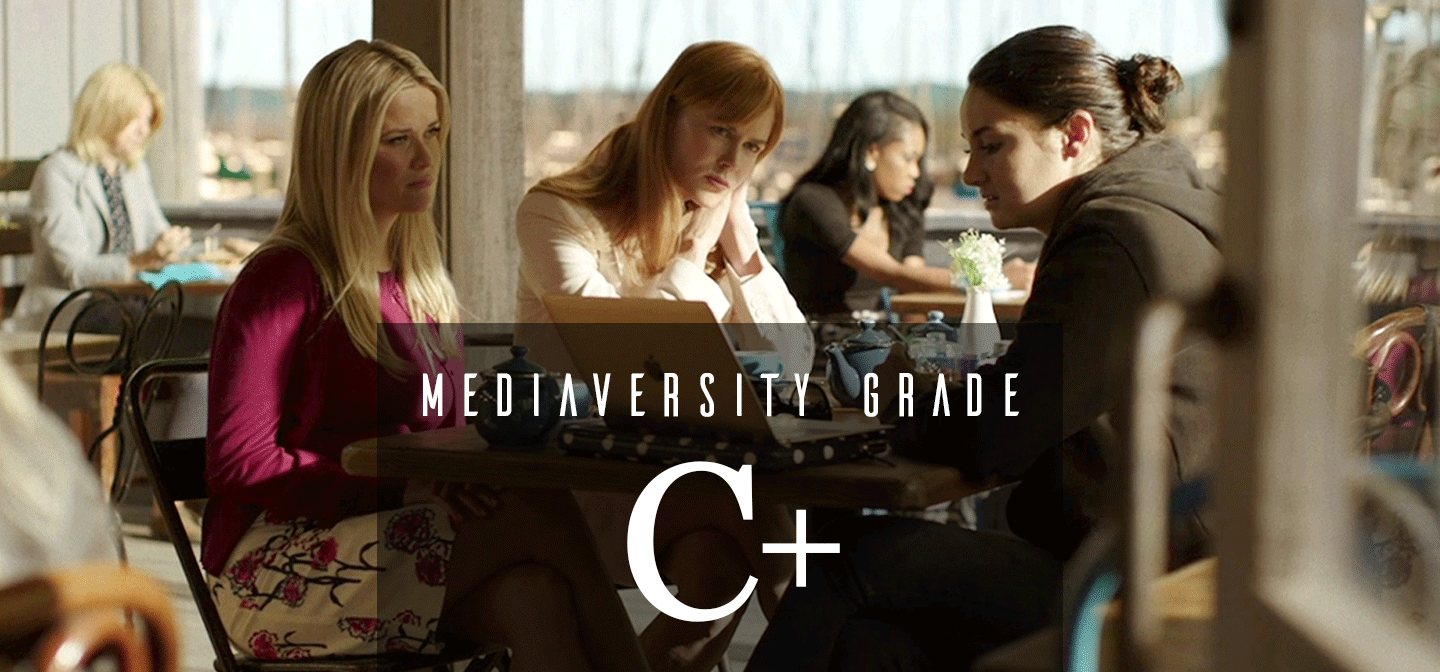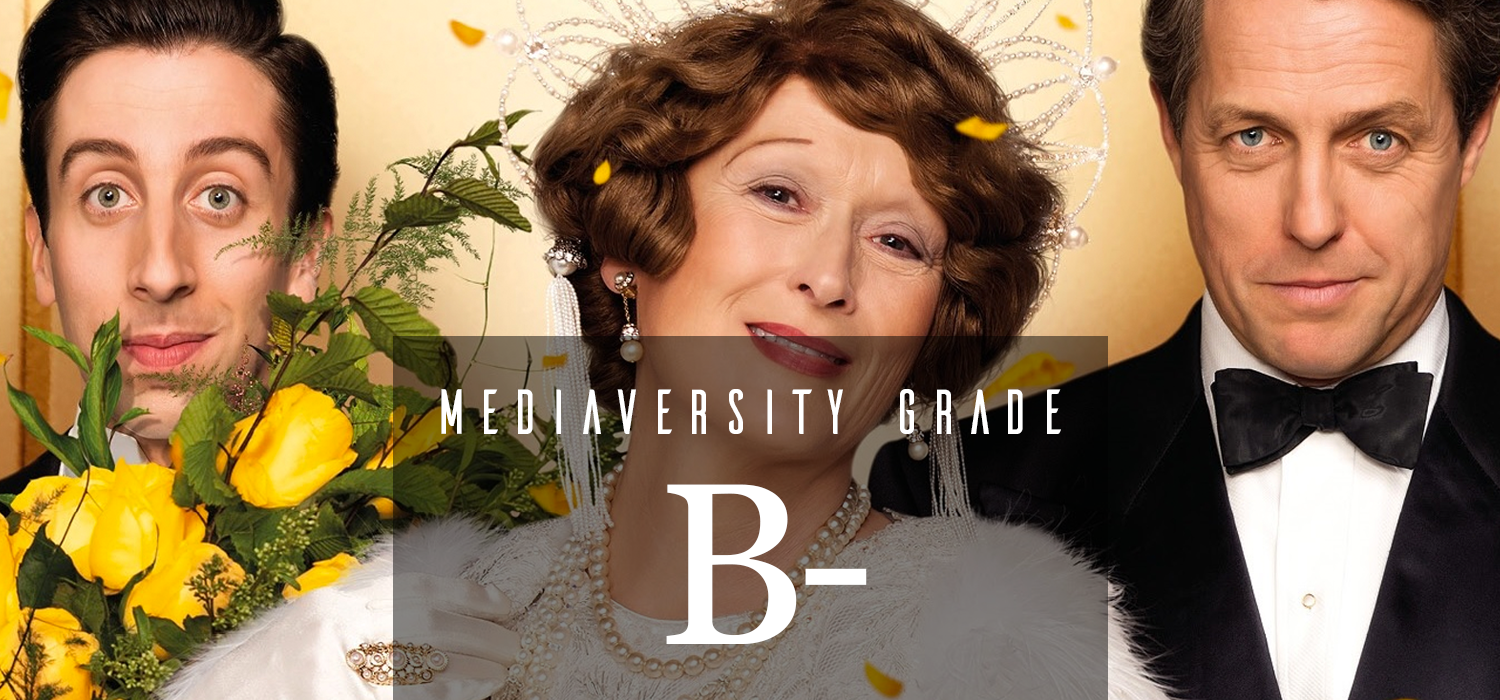Big Little Lies - Season 1
“Big Little Lies features dynamic and engaging women—an effort that unfortunately does not extend to race or sexuality.”
Title: Big Little Lies
Episodes Reviewed: Season 1
Creator: David E. Kelley 👨🏼🇺🇸
Writers: Original story by Liane Moriarty 👩🏼🇦🇺 and TV scripts by David E. Kelley 👨🏼🇺🇸
Reviewed by Tinker 👩🏻🇺🇸
Technical: 4.5/5
Originally a novel, HBO’s Big Little Lies could have been a simple drama about the petty wars that occur between affluent women. Luckily, the show lends its women far greater depth. Following five mothers and their families to the backdrop of a murder mystery, Big Little Lies showcases engaging stories through crisp visuals and excellent acting that highlight the worries, obstacles, and strength of these mothers beyond stereotypical “catfights.”
The miniseries format works perfectly for the show, the pacing never awkward and the story concluding in a satisfying, slow spiral. Matt Zoller Seitz of The Vulture and Daniel D’Addario of Time praise the series for being, “darkly funny, cathartic, and unexpectedly hopeful,” and “well-made enough to provide satisfaction, and sophisticated enough to know that pleasures can come not just from following old narrative beats but from crafting wholly new ones.” And while some reviewers have criticized the series for being melodramatic and “soap opera-ish as on Stuff.com, I can’t help but point to the series successfully tackling serious issues such as domestic abuse, sexual assault, the impact of socio-economic class, and the oft-ignored complexity of characters who are both women and mothers.
While Big Little Lies is not a perfect series, averaging a 75/100 on Metacritic and 8/10 on Rotten Tomatoes, it remains a unique and beautifully stimulating experience packed with stunning cinematography, complex characters, and thought-provoking themes and messages.
Gender: 5/5
Does it pass the Bechdel Test? YES
The series owes much of its success to its excellent, complex characterization of women. Single-mother Jane (Shailene Woodley) and head mom Madeline (Reese Witherspoon) are first introduced in the series, followed by the career-driven Renata (Laura Dern), yoga instructor Bonnie (Zoë Kravitz), and lawyer-turned-housewife Celeste (Nicole Kidman).
Despite the tense disagreements between them, everyone is portrayed sympathetically and multi-dimensionally. Even with the harsh words tossed between, say, Renata and Madeline, no one is good or evil but rather an individual who pushes others to be stronger. By the end of the series, the initial murder mystery and community drama fades away in favor of seeing how the main characters resolve their issues. The core message of Big Little Lies rests in the inspirational, more nuanced power of shared understanding and support between women and their loved ones.
Race: 2/5
In the original novel, there is no racial diversity in the upper-middle class suburban town of Big Little Lies—an aspect that was thankfully tweaked for television. Throughout the series, the show cuts to police interviews of diverse parents and residents of Monterey, CA. But this is largely the extent of the racial inclusion of the show. The script never broaches the topic even with Bonnie, the lone biracial woman among the otherwise all-white leads, and her character is noticeably less developed in comparison. While there have been a variety of opinions on how race was approached throughout the series, these reviews all agree that while the show did not necessarily offend anyone, there were aspects that could have been elaborated on as well. How does Bonnie being the only Black woman in a group of white leads contribute to her identity as “the other”? What does this say about the sense of sisterhood all these women forge towards the end of the series?
Big Little Lies does its modern audience a service by including diversity where the book did not, but the lack of complexity in her character leads to what feels like a rote casting choice, even taking into account the backdrop of a nearly 80% white population of Monterey. In fact, by actual population shares, almost one-tenth of the populace is Asian while less than 3% are Black, with an even smaller share of mixed-race residents. If Big Little Lies was serious about including a non-white character while staying true to its setting, couldn’t they have cast an Asian woman? Food for thought.
LGBTQ: 1.5/5
Aside from a brief joke in which young mother Jane discovers that a waiter is not gay and the inclusion of a background gay white couple, there is no mention or presence of any LGBTQ characters. A shame, considering how the show’s focus on womanhood and motherhood could have naturally depicted a lesbian couple. Still, seeing as how the show has already struggled with writing the non-white character of Bonnie, I’m unsure of how an LGBTQ portrayal would have been executed.
Bonus for Age: +0.50
As mentioned earlier, Big Little Lies’ inclusion of the importance of the lives of women who are over forty, like Madeline and Celeste, is a breath of fresh air. This inclusion was, in fact, the main mission of executive producers Reese Witherspoon and Nicole Kidman (who both star in the show as well.)
Mediaversity Grade: C+ 3.38/5
Big Little Lies is a visually stunning series that features dynamic and engaging women—an effort that unfortunately does not extend to race or sexuality. Where it shines is its ability to spotlight the complex, inner lives of mothers who are often overlooked on television, and that it something that should be applauded.




